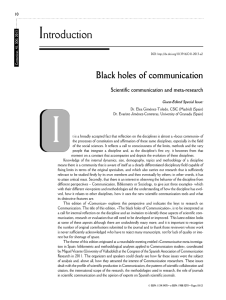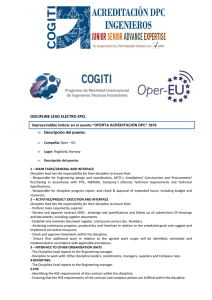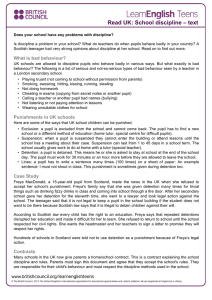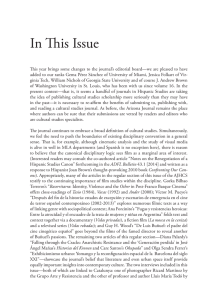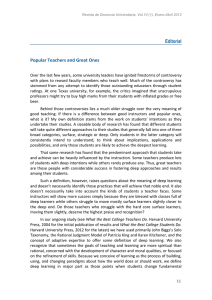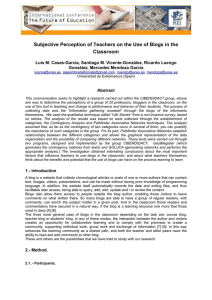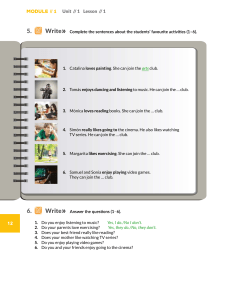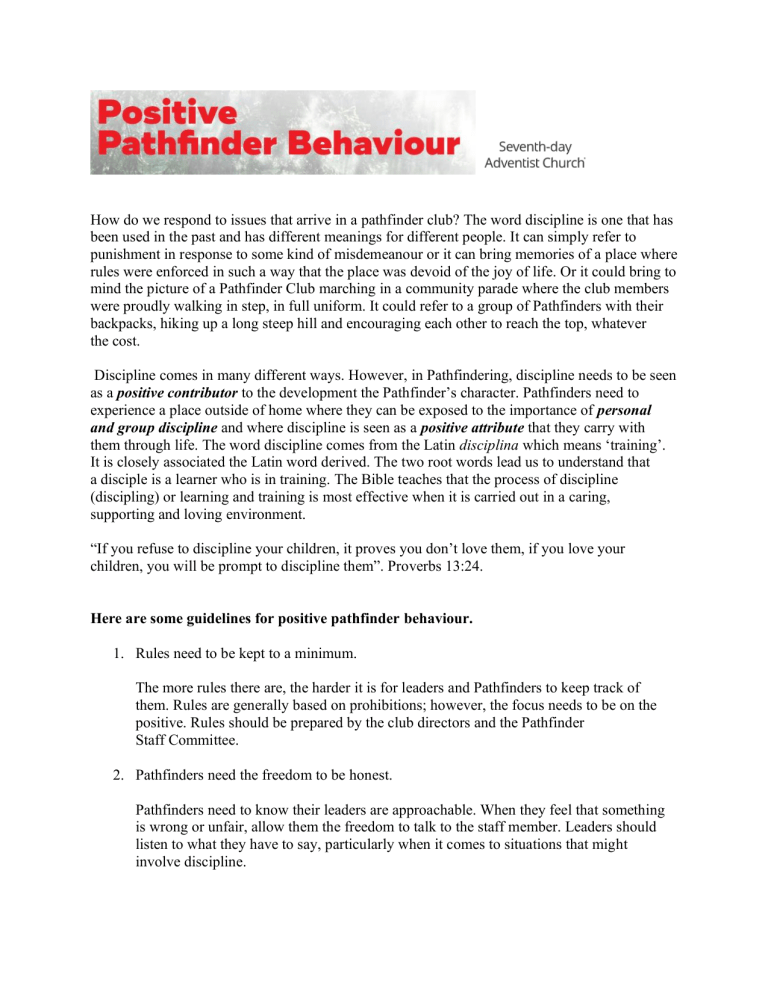
How do we respond to issues that arrive in a pathfinder club? The word discipline is one that has been used in the past and has different meanings for different people. It can simply refer to punishment in response to some kind of misdemeanour or it can bring memories of a place where rules were enforced in such a way that the place was devoid of the joy of life. Or it could bring to mind the picture of a Pathfinder Club marching in a community parade where the club members were proudly walking in step, in full uniform. It could refer to a group of Pathfinders with their backpacks, hiking up a long steep hill and encouraging each other to reach the top, whatever the cost. Discipline comes in many different ways. However, in Pathfindering, discipline needs to be seen as a positive contributor to the development the Pathfinder’s character. Pathfinders need to experience a place outside of home where they can be exposed to the importance of personal and group discipline and where discipline is seen as a positive attribute that they carry with them through life. The word discipline comes from the Latin disciplina which means ‘training’. It is closely associated the Latin word derived. The two root words lead us to understand that a disciple is a learner who is in training. The Bible teaches that the process of discipline (discipling) or learning and training is most effective when it is carried out in a caring, supporting and loving environment. “If you refuse to discipline your children, it proves you don’t love them, if you love your children, you will be prompt to discipline them”. Proverbs 13:24. Here are some guidelines for positive pathfinder behaviour. 1. Rules need to be kept to a minimum. The more rules there are, the harder it is for leaders and Pathfinders to keep track of them. Rules are generally based on prohibitions; however, the focus needs to be on the positive. Rules should be prepared by the club directors and the Pathfinder Staff Committee. 2. Pathfinders need the freedom to be honest. Pathfinders need to know their leaders are approachable. When they feel that something is wrong or unfair, allow them the freedom to talk to the staff member. Leaders should listen to what they have to say, particularly when it comes to situations that might involve discipline. 3. Leaders should be prepared to admit they are wrong. Everyone makes mistakes. When mistakes are made, leaders should be honest enough to admit it. A leader’s willingness to admit they are wrong will gain them respect in the eyes of the Pathfinder and credibility in the disciplining process. 4. Be consistent. The ability to be consistent is both important and difficult, especially if a leader is dealing with a persistent child, “say what you mean and mean what you say”. Apply the same principle with Pathfinders. Treat everyone equally. 5. Seek to solve the underlying problem. A pattern of lateness to meetings or constant disruption can be the symptom of a deeper, underlying problem. Resist the temptation to constantly react to the behaviour. Paul might have had this in mind when he said, “And now a word to you fathers. Don’t make your children frustrated by the way that you When a leader notices that a pattern is developing, they should ask the Lord for wisdom to identify the underlying problem and address it. 6. Allow the Pathfinder to help evaluate their behaviour. Talk the whole problem through with the Pathfinder. Let them cross-examine themselves and come up with a solution. Remember, the goal is to help the Pathfinder discipline themselves. If they are teachable, the more they are involved in the process, the better the chance for constructive results. 7. Never accuse a child; always ask. Often the eyes and the ears deceive. This is why it is best to ask. If the Pathfinder lies, pray that the Lord will help them face up to their lie. It is better to have a Pathfinder know that they can be trusted, even when that trust may be misplaced, than to falsely accuse them and so communicate a lack of trust. Pathfinders need to be taught that ultimately God knows and understands the heart. 8. Leaders and staff need to present a ‘unified front’. The Pathfinder may play one leader against another; if they succeed, their insecurity increases. Leaders and staff represent collective authority. When they are at crosspurposes with one another, the Pathfinder experiences uncertainty. If there is disagreement amongst staff, the decision ought to be deferred until a resolution can be found. 9. Never ridicule or belittle a child. For most people, self-worth is fragile. As Pathfinders are discipled, leaders need to build self-worth, not damage it. When Pathfinders are belittled, rejection (not correction) is communicated. Correction is for the purpose of restoration. Ridicule defeats this purpose. 10. Any correction cannot be physical in nature.
